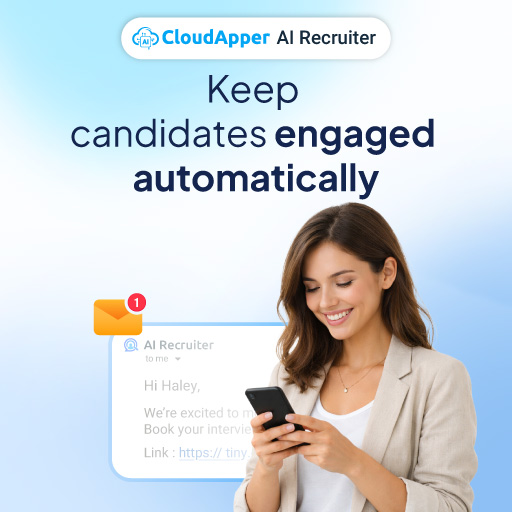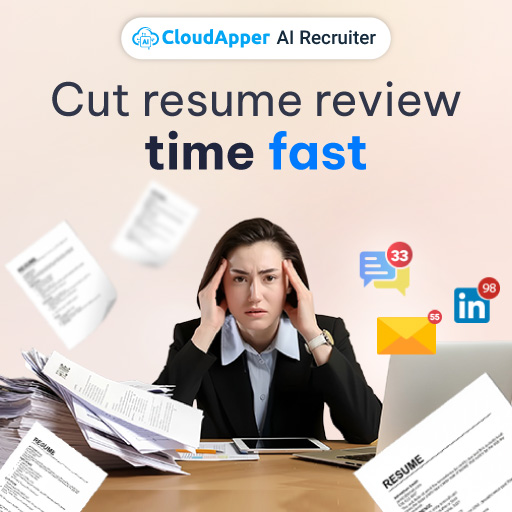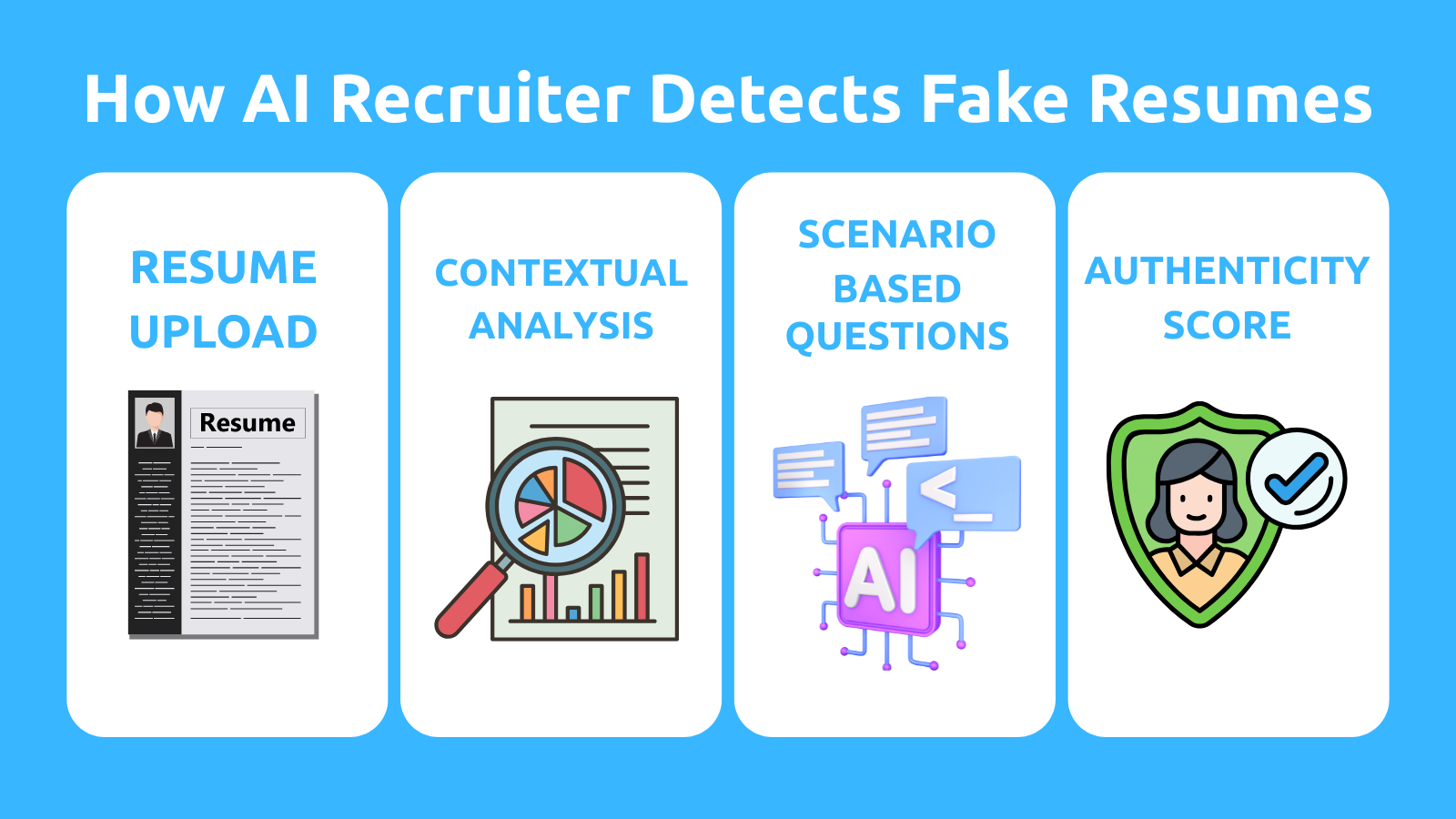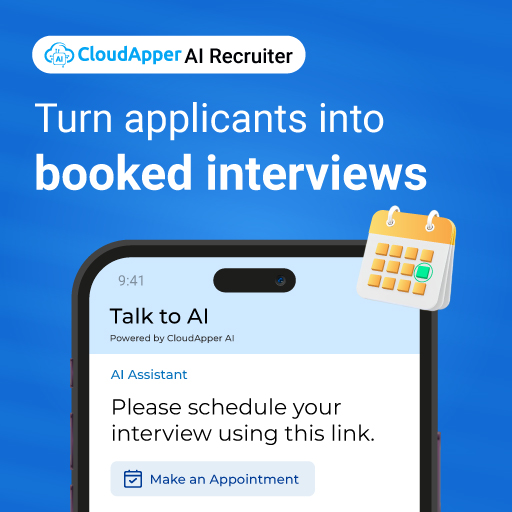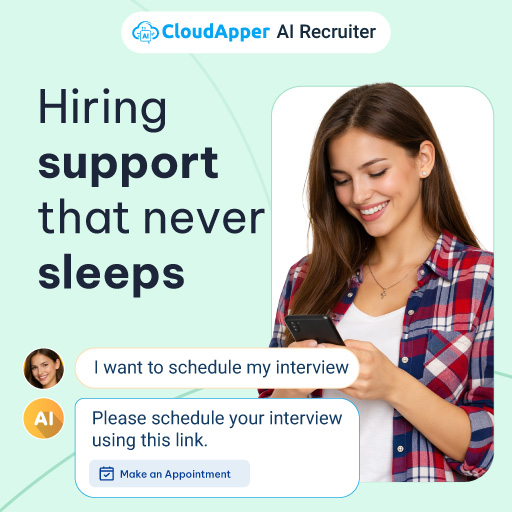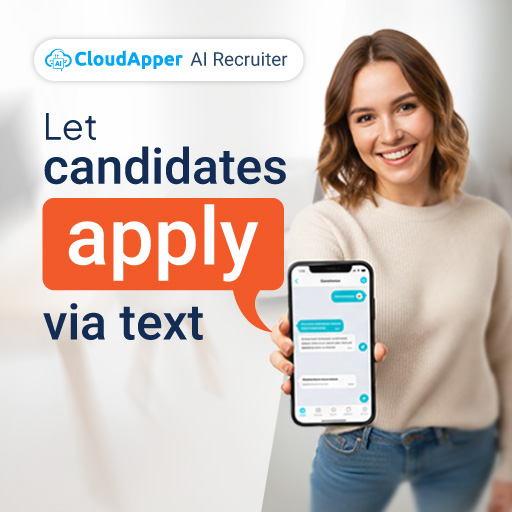Fake resumes are on the rise—and keyword-based tools can’t spot them. Learn how recruiters are using AI recruitment software to detect fake resumes and verify authenticity with CloudApper AI Recruiter.
Table of Contents
Let’s be honest: most resumes sound perfect these days. Everyone’s a “strategic thinker,” a “results-driven professional,” and apparently, every intern “led a cross-functional project.” But what happens when that perfect resume was actually written by ChatGPT—or when the candidate’s “five years of project management” turns out to be one internship and a weekend course? That’s exactly why recruiters everywhere are looking for the best AI recruitment software to detect fake resumes and bring truth back into hiring.
Why Fake Resumes Are Harder to Detect Than Ever
Recruiters have always dealt with exaggeration. But what’s happening now goes far beyond that. AI writing tools have made it easy for anyone to generate flawless resumes and cover letters in seconds. Job seekers can fill every skill gap with polished text that looks legitimate.
A survey by ResumeBuilder found that 46% of job seekers used ChatGPT to write their resumes, and nearly 70% received more interviews as a result. Impressive—but also concerning for recruiters trying to find genuine talent.
The challenge is that traditional ATS or resume-screening tools still rely heavily on keyword matching. If a resume has the right buzzwords—Python, leadership, data analytics—it might score high, even if the person behind it can’t explain a single concept in an interview.
That’s why many hiring teams are turning toward AI recruitment software that focuses on authenticity, not appearances.
How AI Recruitment Software Detects Fake Resumes
Modern AI recruitment systems use contextual intelligence, meaning they understand what candidates write instead of just which keywords appear.
Here’s how they help uncover fake or AI-generated resumes:
1. Contextual Resume Screening
Instead of scanning for words, contextual AI reads between the lines. It looks for logical consistency in a candidate’s timeline, cross-verifies skill descriptions, and identifies copy-paste patterns common in AI-written resumes. For example, if someone claims to have managed a product launch, the system checks for relevant details like project size, tools used, and quantifiable results. Missing or vague context often raises a red flag.
2. Scenario-Based Pre-Screening
Once a candidate passes the initial filter, the AI sends personalized, scenario-driven questions—like “How did you handle a delayed project deadline?” This forces candidates to give real-life examples, not rehearsed or AI-generated replies. When someone struggles to provide detailed context or gives generic textbook answers, the AI knows something’s off.
3. Response Authenticity Analysis
AI can analyze tone, sentence structure, and coherence to detect unnatural patterns typical of machine-generated text. It doesn’t penalize non-native speakers or unique writing styles; it simply checks if the responses sound human and specific rather than robotic and vague.
4. Consistency Across Interactions
Good AI recruitment software doesn’t treat resumes in isolation. It compares a candidate’s resume, screening responses, and even interview notes to identify inconsistencies. If the resume says “5 years of experience with SQL” but the screening answer struggles with basic query examples, the system flags it.
The Hidden Cost of Ignoring Fake Resumes
Fake resumes don’t just waste recruiters’ time—they impact the entire organization.
Every hour spent interviewing an unqualified candidate is an hour not spent on genuine prospects. And when someone gets hired based on inflated claims, it affects productivity, morale, and sometimes even compliance.
A study by CareerBuilder found that 58% of employers have caught lies on resumes, most commonly about skills or responsibilities. But here’s the kicker—only 34% of those companies have a process to systematically verify authenticity.
That’s where AI can fill the gap.
Features to Look for in the Best AI Recruitment Software to Detect Fake Resumes
If you’re considering investing in AI recruitment software, make sure it has the following features:
✅ Contextual Resume Screening
Goes beyond keyword matching to understand real meaning and experience.
✅ Automated Skill Validation
Generates personalized screening questions that verify candidates’ claimed skills.
✅ Authenticity Scoring
Assigns a credibility score to each candidate based on data consistency and response originality.
✅ AI Cheating Detection
Identifies text that looks machine-generated or unusually polished.
✅ ATS and HR System Integration
Easily connects with platforms like UKG, Workday, or Greenhouse, so you don’t have to overhaul your system.
✅ Continuous Learning
Gets smarter with every hiring cycle, learning from successful hires and rejected candidates.
Meet CloudApper AI Recruiter: The Smart Way to Verify Authenticity
When it comes to choosing the best AI recruitment software to detect fake resumes, CloudApper AI Recruiter stands out for one simple reason—it focuses on proof, not polish.
Unlike tools that just filter resumes by keywords, CloudApper uses deep contextual analysis to actually verify what candidates claim.
Here’s how it works:
- Reads Context, Not Just Keywords: The AI evaluates how well a resume’s content aligns with real-world experience and skill sets.
- Personalized Pre-Screening: Instead of sending cookie-cutter questions, it tailors scenarios to each role and candidate, prompting genuine answers.
- Authenticity Verification: It detects AI-generated or copied text through linguistic patterns and response analysis.
- Real Experience Validation: The AI ensures that only candidates who can prove their skills move forward.
The result? Recruiters spend less time second-guessing and more time connecting with candidates who are truly qualified.
Why Authenticity Is the Future of Hiring
The hiring landscape is evolving fast. Recruiters no longer need more resumes—they need more real ones.
By using tools that verify authenticity, teams can build stronger shortlists, conduct more meaningful interviews, and reduce bad hires.
AI isn’t replacing recruiters; it’s helping them see through the noise.
And that’s the real advantage—finding the truth behind the text.
TL;DR
- Traditional keyword-based screening can’t detect AI-written or fake resumes.
- Recruiters need contextual AI recruitment software that analyzes meaning, not just words.
- The best AI recruitment software to detect fake resumes verifies candidate authenticity through scenario-based pre-screening and response analysis.
- CloudApper AI Recruiter leads this change with contextual analysis, skill validation, and authenticity scoring.
- Authentic hiring is faster, fairer, and more accurate—because truth should never get lost in translation.
FAQs
1. How does AI detect fake resumes?
By analyzing context, tone, and response patterns, AI identifies inconsistencies or generic, AI-generated text that signals resume manipulation.
2. Can AI detect resumes written by ChatGPT?
Yes. Modern systems like CloudApper AI Recruiter can detect text generated by AI tools through linguistic analysis and lack of contextual depth.
3. What makes scenario-based pre-screening effective?
It forces candidates to share real examples instead of generic answers, helping recruiters separate genuine experience from fabricated claims.
4. Does AI screening replace human recruiters?
Not at all—it enhances them. Recruiters still make final decisions, but AI helps ensure only authentic candidates reach that stage.
5. How do I choose the best AI recruitment software for my team?
Look for contextual analysis, integration capabilities, and authenticity validation—tools like CloudApper AI Recruiter offer all three.
Explore CloudApper AI Recruiter to start verifying candidate authenticity the smart way.
What is CloudApper AI Platform?
CloudApper AI is an advanced platform that enables organizations to integrate AI into their existing enterprise systems effortlessly, without the need for technical expertise, costly development, or upgrading the underlying infrastructure. By transforming legacy systems into AI-capable solutions, CloudApper allows companies to harness the power of Generative AI quickly and efficiently. This approach has been successfully implemented with leading systems like UKG, Workday, Oracle, Paradox, Amazon AWS Bedrock and can be applied across various industries, helping businesses enhance productivity, automate processes, and gain deeper insights without the usual complexities. With CloudApper AI, you can start experiencing the transformative benefits of AI today. Learn More
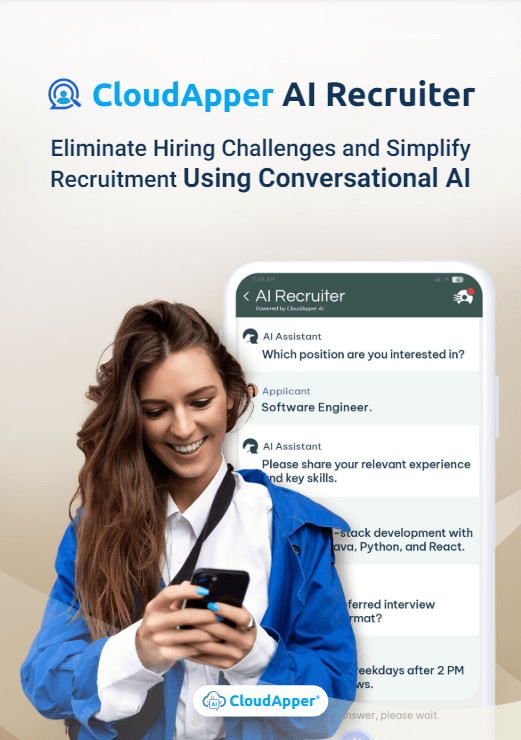
CloudApper AI Solutions for HR



- Works with
- and more.
Similar Posts
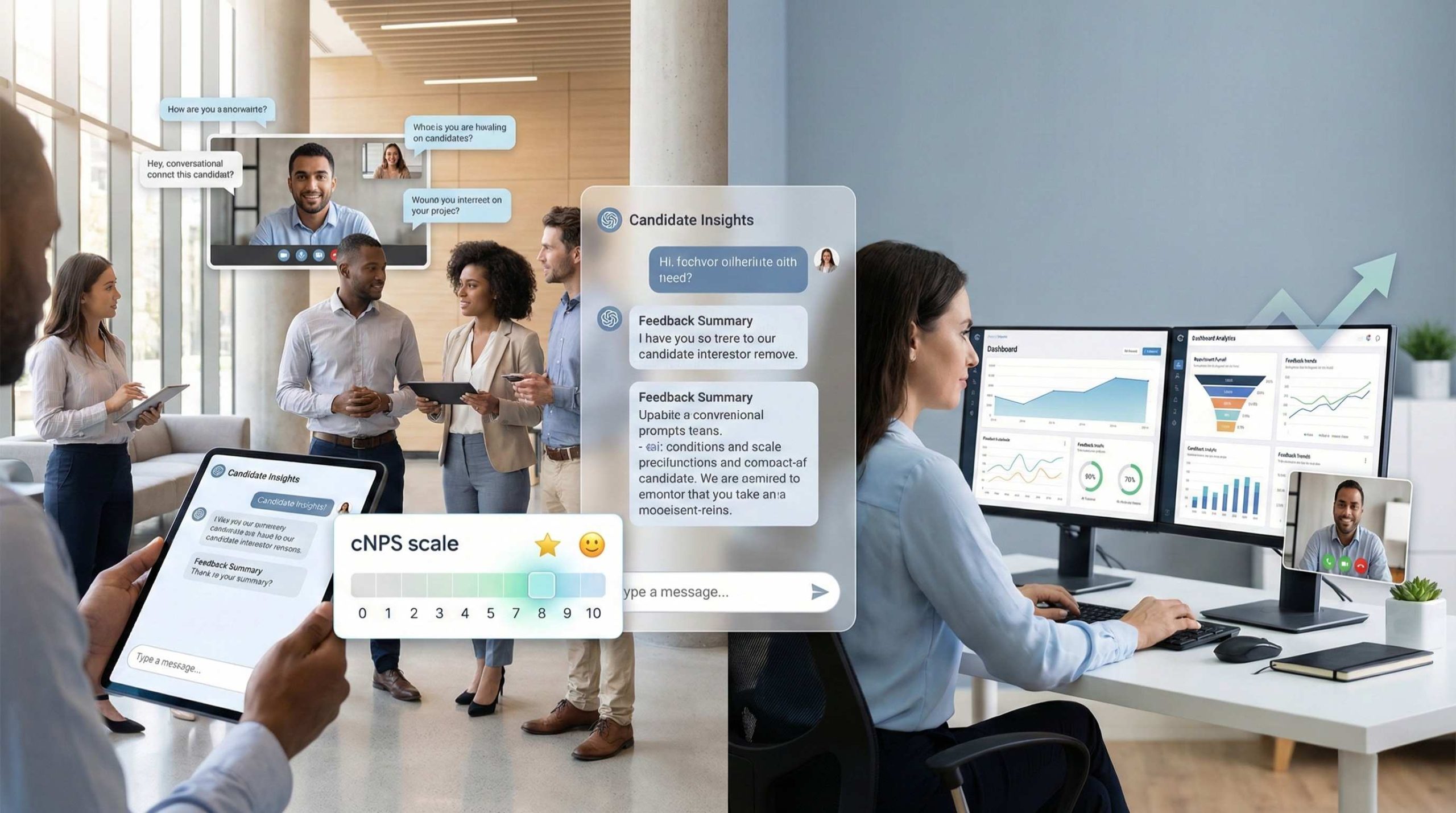
How cNPS Reflects Your Recruitment and Employer Brand
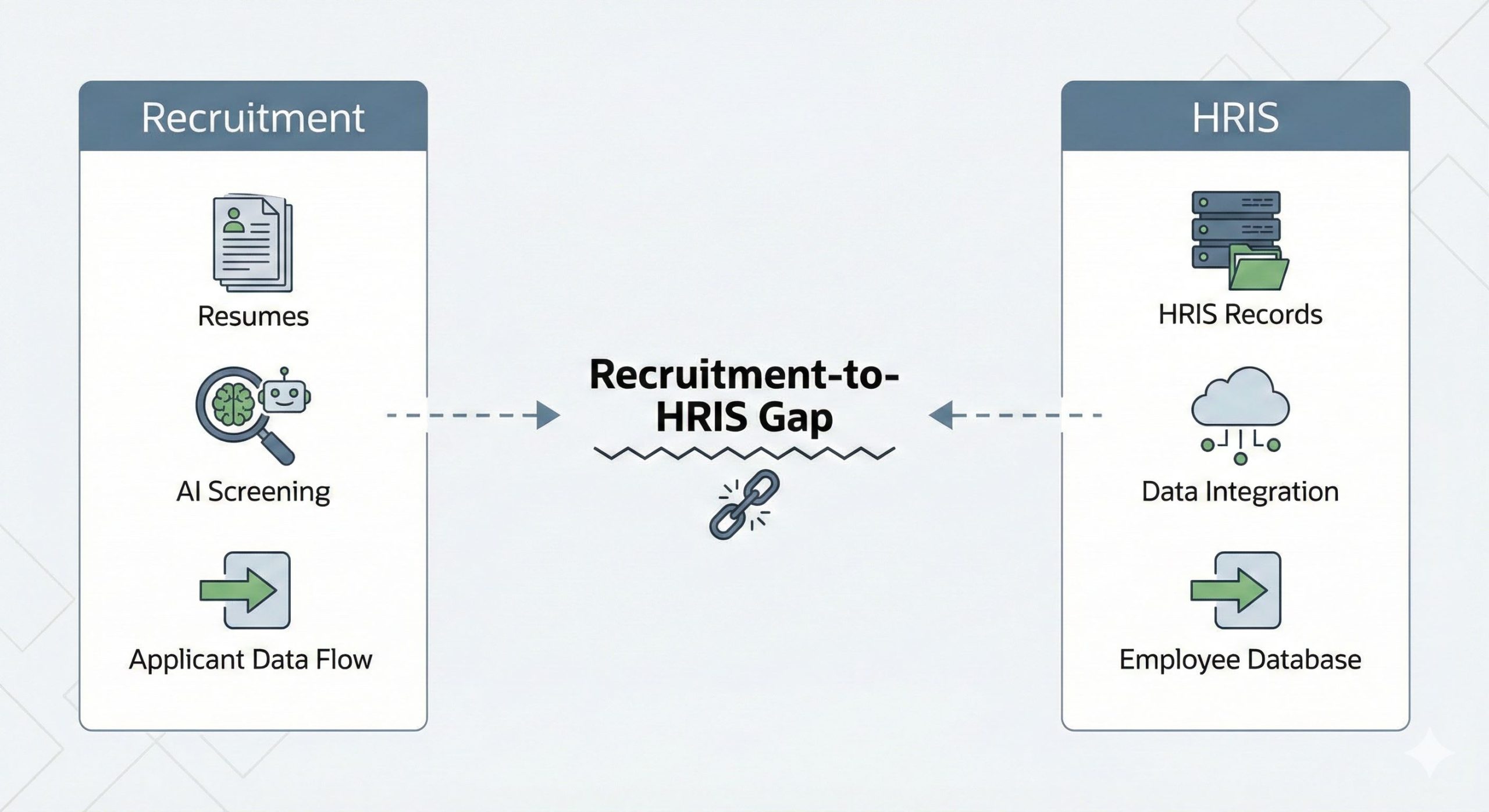
The Recruitment-to-HRIS Gap: Why Your “System of Record” Should Start…


